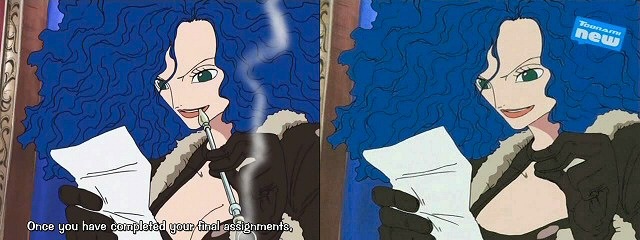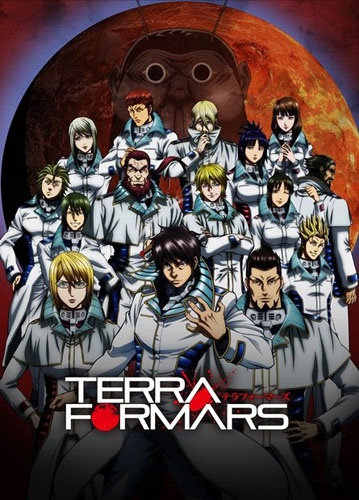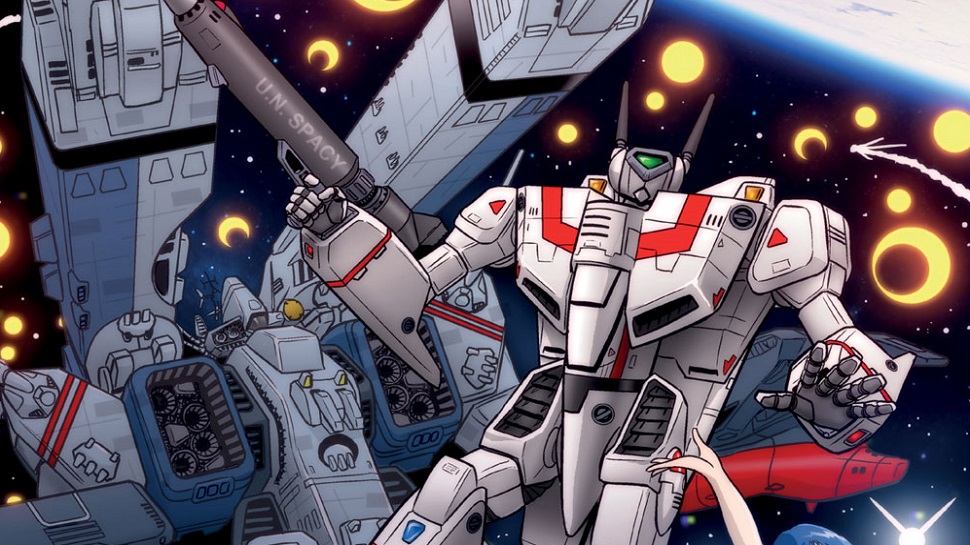Are you a Sub or a Dub?

Translating any anime is always a difficult task because a translation is not a traditional art form. A lot of people believe that any translated anime should just be a one to one direct translation, but as anyone who is multilingual would surely explain to any monolingual individuals, translations cannot always be handled that way. This is due to certain words and ideas not existing in other languages. A direct one to one translation is nearly impossible no matter the language. That is why translators are a truly unique artist. They do not get to create art like a traditional artist does, due to having to maintain a delicate balance between interpretation and representation.
On one end translators, must try to respect the artist’s original vision. While on another make it understandable to a new audience. This is why the debate over subbed versus dubbed becomes a heated discussion at times in the anime community. Purist will say that the dubbing is always inferior to the original. That no matter how well it is dubbed it will always be a misrepresentation of the original. This is due to the fact that there will be a different director, who is interpreting a different script, with a different set of voice actors. Cultural ideas in the original product may be removed, changing the context of a scene. Not only that but the audio syncing may not sync properly with the animation.
Despite what purist may believe these changes do not automatically take away from the original message. In fact, many times when a dubbing is done properly it can actually improve a product. A good example of this is with Code Geass. Some Japanese viewers believed that Johnny Young Bosch’s ( the English voice actor) performance as Lelouch Vi Britannia/Lamperouge was superior to Jun Fukuyama’s (the Japanese voice actor). This should not be much of surprise as Bosch has more experience playing leading role’s. He has also played a lot of characters who were more serious and less comedic when compared to the roles taken by Fukuyama. This shows that voicing a role is not something that is limited to the role’s country of origin, but proper casting. Despite that people still, believe that a subbed version of the show is inherently superior to a dubbed one. But subbing has its own problems.

Subbed versions of anime are often deified in anime communities, due to the fact that they are believed to be the best way to understand an anime’s original message. They are treated as if they have no shortcoming when that could not be further from the truth.The first being that the viewer has to spend the entire anime reading. This is counter-intuitive to a visual format. Not only that but if a character is speaking really fast or characters are speaking simultaneously it may become hard for the reader to keep up with what is being said and they may miss jokes or important plot points. That or the jokes may not work in the context of the new language or culture. Subbing maybe a closer reading to what the original production said, but that does not really offer any enhancements for foreign viewers. Also according to director Hayao Miyazaki subtitles can detract from the original message of the show. This is why he never wanted his films to ever be read. He felt they distracted from a lot of the visual messages that he put in his films and made it harder to become immersed. This is part of the reason why he supports the dubbing of his films. He believed that when properly supported, studios doing the dubbing could capture the message of his films even with different dialogue or actors. With that being said which one is the truly superior format for watching an anime?
The simple answer to this question is that neither is inherently superior to the other. Neither one will give the viewer a pure experience. Short of learning a foreign language there is no true way of watching a translated product in a pure form. Any translated production should be interpreted as a retelling of a story. This due to the fact that it is being retold in a different language and that should not be treated as a bad trait. The problem here is that there is a perception that different is inherently bad. This could not be further from the truth as both styles of translating can add to the subjects they are translating. What both groups should be concerned with is not the fact that a product is being subbed or dubbed, but the quality of the localization of it.

Localization is taking anything that is foreign and making it local in character. Localization includes many parts such as dubbing, marketing, sound, censorship, casting etc., This is part of the reason that some animes will have different soundtracks or be censored differently depending on the region. The best example of this can be seen in anime of the early 2000s localized by 4Kids TV. Often times the dialogue would be changed, so many foreign ideas, foods, etc., from the Japanese version would not be present in the American version. This can be seen in the Pokémon series. Rice balls in Pokémon would be turned into donuts or sandwiches. Also, animes localized by 4Kids TV would sometimes change character names so they would appear more western (i.e. Yu-Gi-oh’s Anzu Mazaki becoming Tea Gardner). Content that had a sexual nature would be toned down or completely removed. An example of this would be when a female character that showed a lot of cleavage would have her bust size reduced. These changes mainly occur when a show is being broadcast on a cable network. This is usually due to cable productions content being held to a certain standard and this is where the debate gets interesting.
When cable networks would go about localizing foreign shows for their network they often times had only two real concerns. The first was turning a profit and the second was not getting sued by either the company that they are licensing’s show or the FCC (at least here in America). This is part of the reason companies like 4Kids TV went out of their way to censor anything that could be questionable with the FCC or cause viewers to not watch their show. It is also important to note that most of these changes that are made, are often times cleared by the original rights holder of the show. So these changes are approved by multiple sources. This is what leads to a lot of early dubbed animes suffering in cut content. This also applies to Japanese broadcasting as well. Japanese broadcasting companies will often times cut violent scenes both in western shows and Japanese ones.

This can be seen in how Tera Formars was heavily censored when it broadcast in Japan, but the western audience’s got an uncensored version. When content was cut from these anime’s it was almost always done as some form of censorship and once again 4Kids TV was one of the biggest practitioners of this. Some defend these cuts believing that it is okay so long as it does not change the message of the show. Though this could be debated as well because shows like Sailor Moon that had gay and gender-ambiguous characters (or characters that cross-dressed) had their gender and dialogue changed to fall more in line with the norms of society. Another argument that is made is that it is okay because the censored versions are for kids and adults can go watch the uncensored version somewhere else, but that is not always the case. Especially when looking at early anime as it was not popular or profitable enough where there would always be an uncensored dubbed version. It is also part of the reason that some animes are only subbed and never dubbed. Because if they are not popular enough were they can guarantee that they will turn a profit outside their country of origin, licensing companies will not spend money on getting them dubbed. As once again some licensing companies are usually doing this to turn a profit. One of the most notable examples of an anime being localized with the idea profit before proper production is Robotech the Macross Saga.

Many fans often blame Carl Macek for the questionable decisions made with localization of the Macross series. They hate the merging of three separate anime series (Macross, Super Dimension Calvary Southern Cross and Genesis Climber M.O.S.P.E.A.D.A) into one continuous story known in North America as Robotech, which premiered in America in 1985. Macross purists often claim Macek and Harmony Gold ruined the American dubbing by mixing it with two unrelated animes. The 85 episode series has a completely different plot line and content due to the inclusion of unrelated events and is cash grab according to Macek himself.

In a 2007 interview Macek did with Noziement Macek, he admits that his boss at Harmony Gold was simply trying to promote the model kit line they had been licensed to sell. They did not care if the anime succeeded or was an accurate depiction of the original so long as it led to them selling models. They even laughed at Macek’s belief that they were watching the birth of a new franchise in the west. For Macek, it was the start of anime getting serious attention in America. According to him the only reason he merged the three series into one was due to the fact that for any of these series to get produced they needed at least 65 episodes. That way the series could be continually running on the weekdays. Neither series met the requirement so he adapted all three as if they were one series at the request of Harmony Gold. He was completely willing to sacrifice the original story because he felt it would be a missed opportunity. Carl Macek went onto localize many other shows besides Robotech. He also helped localize Bleach and Naruto until he passed away on April 17, 2010, due to a heart attack. But due to his work on Robotech, he helped bring anime into the mainstream media in the west. His work on Robotech was one of the earliest examples of dubbing and helped people become aware of the problems with it and the benefits of it much like Ted Woolsey.
Ted Woolsey is one of gaming’s earliest localizers. His first project was subbing the game Final Fantasy 6. It was known at the time as Final Fantasy 3 due to the fact that western audiences had not received certain games in the series yet. So this was the third installment to be localized for the west and it was not an easy task due to how poorly localization was handled in the past. It was seen as something not important by foreign developers at the time. According to Woolsey in his 2007 interview with Player One Podcast localization was not taken seriously. This was due to the fact that the target audience was children. That is why when foreign games being localized, the original developers believed all they needed was someone who could translate the language in the game, but that was not the case. Woolsey knew that there were several technical and cultural limitations that would prevent that from being the case. Games being created on cartridges did not have the space for memory that games being created on Blu-ray disc do now. So when someone was translating a language like Japanese into English it usually did not work, as English uses more characters than Japanese. It was also a difficult task because the system that he was using was optimized for the Japanese version of the game.
This led to Woolsey doing something that many fans both hate and love him for. He completely rewrote a lot of the script. This led to the character of Kefka who originally was a sadist in the Japanese release being more of a man-child in the American one. An idea that Squaresoft found so favorable that it was later kept and expanded upon with all of Kefka’s future appearances. This is not to say that Woolsey did not make any mistakes, as he often assigned the wrong gender to characters in the game. This was largely due to the translations that were given to him not having an assigned gender for the characters. This is due to the Japanese language not using gender in its speech. It is usually inferred based off who is speaking or being spoken to, but his work on Final Fantasy 6 lead to an industry standard being set for the localization process. This lead to Squaresoft (now Square Enix) assigning more people to help him with the localization process for their later games and that is what fans should be judging foreign content by, as a localizer typically has no reason to cut content or change characters. Woolsey only did what he did to make the game playable in English. He had no plans to change the way Kefka was perceived. The same could be said of Macek. Despite changing the Macross series storyline he had the best of intentions, as Macek was a huge anime fan and only wanted it to get it proper exposure. Which is why it is not uncommon to see localizers take certain liberties with the story of animes when being localized in the west (for better or worst)
Without anime being marketed on major cable networks they probably would not have the same massive appeal in the west that they do today. Things like anime probably would continue to have a limited fan base outside of Japan. This is the same for games and movies. Major broadcasting networks played an important role in getting content that would otherwise go unnoticed. It is true that they suffered during the 1950-2000’s for one reason or another. Some had poor voice acting. Others had inaccurate translations. Some do not even follow their original storyline like Robotech, but that’s changing now.

Due to the rise of streaming sites like Netflix, Crunchyroll, and Hulu on the internet, foreign films and shows are more easily accessible. They are also now free of a lot of the restrictions that government broadcasting companies like the FCC set of networks. This allows them to be released closer to their original form leading to a boom in their popularity. With that, there has been an increased budget for the dubbing and subbing of these animes. Space Dandy despite being a Japanese series was dubbed at the same time for America. Its episodes also aired in the United States one day before its Japanese release. Anime has an actual serious following in the west now. So much so that children shows like Codename Kids Next Door, The Amazing World of Gumball and Adventure Time can make anime references and their fans would recognize them. What has been achieved may not be a perfect understanding of another culture, but that does not mean it is worthless.
What do you think? Leave a comment.











The English get little enough exposure to ‘foreign’ languages, without suppressing every occurrence. I’d like to have more people on TV news in their own language, with subtitles, rather than an English voice-over.
Already it’s possible, with the right kit, to choose subtitles in different languages if they’re available. It shouldn’t be too difficult technically, though it would need more bandwidth, to make available different audio streams.
While this is true enough, there is a counter argument to be made that Engllish native-speakers (the U.S. is even worse regarding this than the UK) also get little enough exposure to foreign-language cultural output (be it films or television or popular music) and thus, by extension, to foreign ideas and ways of looking at the world or even basic aspects of everyday life in foreign countries. (E.g., how the legal/criminal justice system elsewhere works and differs from the common law model “we” are familiar with.)
And the painful truth is that, for the vast majority of people, subtitled foreign-language fare is a huge turn-off, associated with “effort” and “elitism” and restricted to the art-house ghettos. Dubbing, however imperfect and annoying it can be, at least removes this stigma, ensuring more people will probably give the “foreign” film/programme a chance.
Ultimately, it is perhaps a question of what is more “valuable” – exposure to a foreign language, or exposure to aspects of a foreign culture?
I agree that with today’s technology different audio streams shouldn’t be a problem.
Indeed. I’ve often thought that general literary standards of a country can be indicated by whether non-mother-tongue films on TV are dubbed or subtitled.
Sometimes, trashy anime that have been dubbed actually adds to their enjoyment as they become a whole lot funnier.
I only watch subbed anime if there’s no dubbed version of it.
I usually watch shows both subbed and dubbed and then decide which I prefer for each individual show. For example, I definitely think shows like Attack on Titan or Fate/Zero are MUCH better Subbed than Dubbed. But then again I also think shows like Fullmetal Alchemist Brotherhood or even My Hero Academia (dont kill me) are slightly better dubbed than subbed.
I like the English voice actor of deku from my hero academia.
I’ve heard Deku’s and Bakugo’s English voice actor. Both of them are pretty good. I personally watch the sub’s, just because I can get my hands on that version more easily. But if I was forced to watch it in English it would not bother me.
It’s great to see your article go live. Well worth reading and you’ve put your points across nice and clearly. Cheers
There are definitely some in which I would go one way or the other. For something like Dragonball, I grew up on the dubs, so I am used to hearing those VAs as opposed to the original Japanese counterparts. For something like Attack on Titan or Sword Art Online, I was introduced to the subs first, and so they feel more natural to me. If I am invested in an anime, I will go with the sub, but if I know I am going to go in and out when it comes to listening to and watching it, I would go with the dub so I can at least get the gist of the episodes.
Translation between two languages is not a easy task, and it is even harder involving culture and other factors. Translation is a new way of rewriting and means a lot to its target audiences if the translator takes the cultural and social factors into considerations. Great article with examples.
I started out watching the One Piece anime dubbed, but I think I ended up switching to the sub right after the Enies Lobby arc. You make a good point in your article. A lot of times, the voice acting is much more critical than the language.
Those countries that have subtitled films and television (Scandinavia, the Netherlands, Greece) tend to have stronger levels of fluency in English than those that dub (Italy, Spain, France).
Now it could be pure coincidence, but I think that subtitles help a lot.
Fantastic article on the sub & dub debate. The history of animation is something I’m hugely interested in and I’ve been doing a lot of research (in the most practical sense by watching vast amounts of stuff from the 70s through to the 2000s). A few observations I made were that the 70s/80s were very much a time when the industry was finding its feet and trying new things – you had shows like Devilman being, if I recall, the first prime-time animated series, Mobile Suit Gundam the first successful serious military sci-fi show and then the boom of one-shot films and straight-to-video releases in the 80s – most of which were bad but all were lovingly animated to a high standard.
The big problem is that the stuff that does get localised in the UK is not, for the most part, the actually good stuff – and it would be more productive to look to the earlier series and re-release them.
I watch dub if the show has one and if it doesn’t, I watch subbed. It might be because I’m studying english voice-acting for myself, so I like to hear english voices. I also think a lot of the english voices sound interesting and unique. Japanese does often have more realistic emotion; but I preffer the sound of many of the english voices, and since I speak english, I still find dubbed more fun to watch, and I find that dubbed lines often sound better than subbed because they’re changed to sound good in english.
I will usually watch dubs if the VAs are good. If not, I will watch subs. The reason is because it is not just written words that convey emotion, but spoken words as well. Hearing characters speaking in my own language can help me invest more into characters. But if I have to read subtitles just to know what characters are saying, it is harder. Plus, dubs are translated better than subs usually.
I always prefer dub. I don’t want to always have to look at the screen to understand what the character’s are saying. It’s so much more conventional.
Most anime I watch, I watch in sub. However, if the show has a dub that isn’t half bad: DB franchise, Naruto series, MHA <– controversial there, then I watch it in dub.
Season 1, 2 and the movie of Hetalia have amazing dubs. But the newer ones have a messed up dub where Italy’s voice was really high pitched for no reason and I hated it.
A really interesting read! I didn’t even know this was a topic, but once you laid it out I became aware this is an issue that I have noticed, but not often given much thought to. Thanks for sharing.
I like the voice actors typically from 81 produce such as Ryūsei Nakao. I watch a lot of anime and its always subbed. Some dubs arent too bad but some of them make it sound like I’m watching a cartoon versus an anime. My biggest issue other than the quality of acting is also a lot of times the Dub will purposefully change the translation for example with profanity.
Personally i prefer dubbed most of the time, however there are exceptions to that, for example the acting wasn’t exactly bad but the voices didn’t match the characters for clannad, so yeah i watched that subbed, but in high school dxd i just loved rias’s deep and shmexy voice(, and another reoccurring voice actor is todd haberkorn who does death the kid in soul eater, ling in fmab, natsu dragneel, allen walker in dgrayman, and as hikaru in ouran highschool host club.
Example why dub is weird in some anime… Example: naruto dubber is really really unsatisfied to hear, naruto himself sound so squeky, some of the characters are fine in english but some UGGHHHHH.
Part of the issue with the dubbing of Naruto was that Maile Flanagan was trying to imitate the original Japanese voice acting. Something I personally believe an actor should never try to do. But I also believe that was done to try and give the fans an experience similar to that of the Japanese version. Which does not work because of the way language works in both of our cultures
I’m personally not overly bothered by Flanagan’s portrayal of Naruto because I thought Naruto’s character was supposed to be annoying. It’s part of the reason why he is one of my favorite characters in anime. Seeing Naruto go from annoying brat to the experienced hero of the leaf made me happy. Though I agree the voice does not fit adult naruto.
My favorite dubs are Gundam (Univeral Century), Doraemon, and Lupin!
I like to watch dubs when it is a action anime and if it is a calm anime I like it subbed.
I prefer subtitles over dubbing. It just… doesn’t sound really nice in my ears. I’m not American and all, but I love English, so I’m already learning it and etc. I don’t know Japanese, so I guess it’s because of that. I’m going to give Attack on Titan as example; I’m sure that, if I did not watched the anime subbed first, I’d probably don’t like Armin’s voice (by the amazing Inoue Marina :3) being more “female”. So yeah, I guess it’s because of that. But if you prefer dubs, I’ll respect you!
The reason why I don’t like dubs because 90% of them are censored and the lines are changed.Those who watch dubs have an attention span of a gold fish end of story.
I watch subbed anime because I take Japanese in school and it can help me learn new words and better understand native Japanese speakers when they talk.
No, that’s not true at all. That’s all I have to say.
Japanese film makers seem to me to have so much more imagination and creativity than your typical Hollywood or Disney productions.
I actually disagree with the idea that Japan is inherently more creative than America. Largely due to the fact that early Japanese anime pulled inspiration from Disney animation. You can easily google search and find early Japanese anime that look like a knock-off version of their American counterparts. Many famous Japanese directors such as Hayao Miyazaki actually use western ideas in their story. Now I definitely agree that Hollywood/Disney likes to rely on a specific formula, but the same could be said about Japanese anime/films. Part of the reason why I wrote this article is that I wanted people to be willing to expose themselves to new experiences. Instead of plainly accepting that one idea/culture is inherently better, I wanted people to try both and make an objective statement.
I watched animes dubbed when i was younger because i had a short attention span and didnt like reading. I just wanted to be lazy (since I was watching my tv show or whatever). But as i grew i realized that subbed gives the anime a different feeling because of the actual dialog and sounds. They have a large influence on the anime, which is why i like trying to get as close to the original anime as possible. (While not being able to speak/ understand japanese)
Intriguing discussion and something I have thought about often. With Anime the audience may be younger and struggle to keep abreast of sub- title reading. My preference is sub- titles as I love hearing other languages. Liked the discussion on glocalisation.
Substituting words from language into their ‘equivalents’ in another language is not translation…. it is merely word substitution. We must look at the whole sentence or even paragraph, even the whole text before deciding on which words to use.
I personally will watch whichever one is available to me (typically the sub, because that’s what comes out first, however in other cases the dub because that is what is broadcast to us more). If a dub version comes out later (and I liked that anime enough) I will watch it again in the dub and decide which one I like better.
What I’ve noticed is that many people who watch both subs and dubs tend to favor whichever version they saw first. For example, when I was around ten I watched the InuYasha series in English. In my later years, I got around to watching the Japanese version and while I liked it, I was more comfortable with the English, not because that’s my native language (because believe me, I LOVE foreign languages) but because it was the one I was used to.
Another thing this article leads me to think about is the introduction of SimulDubs, which in my opinion, have significantly lowered the quality of dubbed versions of anime. I find the point made by Hayao Miyazaki to be quite truthful, that as long as they’re given adequate time and support, translations can be true to the original. The fast-paced nature of SimulDubs takes that (in my opinion) necessary time away and thus we get hastily cast, not as artfully translated works that are sometimes terrible affronts to the original work, which only feed the purist argument and detract from the fostering of a healthy interest in both forms (original and translation).
*Kanye shrug*
Aside from when I was a child I’ve always watched subbed. I feel as if subs are the most authentic portrayal of anime as an artform, the japanese dialouge also assists in developing my Japanese vocabulary.
I prefer subs to dubs mostly because the voice acting feels more natural although I attribute that to subconscious tricks. The translation either way will be similar but hearing the language of origin feels truer to me than to hear it dubbed over. Since I was young I have listened to subs over their dub counterparts and have a better connection to subs except for a few Ghibli films that I accept either way.
I was getting rather upset at the descriptions of Carl Macek until you clarified later in the piece that he had the best of intentions and that he did what he had to in order to get anime in front of a western and particularly US/Canadian audience. I was there, in the early days of fandom for what was called in those days “Japanimation”, prior to Robotech. Let me tell you, the pickings were slim! Most producers didn’t give the first damn about quality, they bought the rights to Japanese shows on the cheap and slapped together the most rudimentary script possible in order to fill a timeslot (usually weekday afternoons and other off-prime slots) as cheaply as possible for an audience of 8-12 year olds. Because of that, Japanese animation had a horrid reputation as cheap, mindless garbage and only a few informed fans in small clubs operated through the mail knew any different. Japanese producers of the time didn’t care, because they never created their work with any thought of exporting it beyond the Japanese domestic market. For them, these gaijin coming to them offering money for overseas distribution rights were baka, anime was thought of as meaningless outside of the Japanese context. They simply separated the foreign fools from their money and thought nothing more of it.
For example, Voltron was (like Robotech) assembled from two (intended to be three, but the third never aired) completely separate anime shows and the scripting was atrocious. All serialized plotlines were discarded and an episodic format slapped onto them, so that they could be shown in random order, and they were censored heavily. To figure out what was supposed to be going on, you had to watch regularly and piece together the clues of what the storyline was supposed to be like putting together a puzzle. Looking back, we must have been pretty much writing the whole thing in our heads and filling in the gaps on the fly, because trying to watch those shows again as an adult is basically impossible. Half the time there’s hardly any dialogue, and for a good chunk of that what they’re saying doesn’t even match what’s happening on screen!
Macek wanted better for Robotech, and he delivered. Yes, he changed names and localized Japanese elements out to make it more accessible to US audiences and censored what he had to. Still, he worked damned hard to make the closest match to the original that he could and still get it on the air. For that he had to break several previous rules, insisting on them by threatening to resign. One, he insisted the series episodes ONLY be shown in proper sequential order, which had never been done. Secondly, he insisted that character death not be excised from the scripts, both for major and minor characters. If someone died in the Japanese version, they died in Robotech. That was absolutely unprecedented, and nearly was a dealbreaker that would have tanked the whole project but Macek stuck by his guns. Finally, he insisted that –despite the changes he felt were necessary– the original complexity and depth of story and characterization not be watered down to cater to a younger audience. For the first time, an anime series that was intended for teens and adults in Japan was kept in a form that could appeal to teens and adults in the US.
Insisting on all of this was a HUGE risk, and nobody knew if it would pay off. We in the clubs were hoping there would be an audience beyond our paltry numbers for such an unprecedentedly faithful adaptation, but none of us knew. Fortunately, it found its audience and in so doing it completely changed the game for anime in the west. It essentially created the market and the fandom that exists to this day. That’s why I get so furious when “Macross purists” curse his name –if it weren’t for Carl Macek and Robotech, there wouldn’t BE any such purists in the west! If not for Macek and Robotech opening that door, the vast majority of them would not even know what anime was and certainly would have never seen it in the carefully translated but otherwise unchanged form that anime fans today enjoy. Carl Macek cut the trail through uncharted territory, and these people too young to have been there complain that he couldn’t provide a paved and lighted road.
Usually, I prefer to watch subbed anime. It is true that reading the subtitles may be distracting, and the viewer may lose focus on an important detail of the show. However, I still prefer the subbed version because whatever show, may it be a soap opera, a movie, anime, or any other type of visual entertainment, in its native language, it seems to capture and transmit a genuine emotion. Whereas a dubbed version projects a more neutralized expression. It may be that I’m just biased, but as a bilingual person, that’s how I see it.
I believe that both are needed in order for greater understanding. True anime fans watch both subbed and dubbed anime. Part of this is due to the anticipation of the next episode. Dubbing takes much longer due to actors having to voice the characters over again. Subbing is short, due to simply translating the language in the subtitles. It is true that meanings and dialogue may be changed during the process. There have been more disappoints contributed to dubs over subs, however. Directors can misinterpret, while writers can be as close as possible to the story. Perhaps subs may be better suited for children rather than more mature communities. Thank you for the read.
I’ve watched only sub and dub both. It is truly hard to say which is better. It really depends on person’s style though.
I think that both subbed and dubbed have their own advantages. It is nicer to just sit back and enjoy an Anime without having to read subtitles, however, sometimes one can become accustomed to it to the point that it feels as if you have watched something in English. Depending on the Anime, I’ve found that the dubbed version doesn’t always select the voice actor that I would’ve imagined to voice a character in Anime and can sometimes be disappointed with the dubbed version. A good example of bad dubbing is the Psycho-pass movie, because it ignores the translator used by the main protagonist and, because everyone is speaking in English instead of in Japanese and English, the original plot or use of those translators become lost. Depending again on which Anime, some dubbed versions can be close to the original, except for a few small words or humorous comments (like in Yona of the Dawn). It is sad to know that many subbed Anime won’t get dubbed due to it not being popular enough to be turned into profit. It would’ve been nice if companies could return to old subbed Anime’s and see whether a wider audience has discovered it and then reconsider doing a dubbed version; especially in regards to two of my favourite Anime’s: Uragiri wa boku no namae wo shitteiru (Betrayal knows my name) and Soredemo sekai wa utsukushii (The world is still beautiful).
I watch both regularly, and will admit that sometimes the sub is better than the dub and vice versa. Though like you said, at that point it comes down to the translation skills and the experience of the voice actor. Shows like Code Geass, Magi, and Fullmetal Alchemist Brotherhood were really better with the dub in my personal opinion, but other shows like Attack on Titan, and even Your Lie in April I preferred subbed. A good example of a dub not being taken seriously though, would be the second season of Free! Iwatobi Swim Club, which is a show better remaining subbed, despite it’s reputation.
Personally i usually watch subbed simply because i cant stand majority of the voice acting in dubs, their not all bad, its just my preference. Great article though.
A really informative article I had expected to be a discussion simply comparing subbing and dubbing practices but actually taught me a bit about the globalization of anime. Fascinating, rocky history.
I’m definitely not picky when it comes to sub or dub, though when I ran an anime club at my high school, I’d have to really consider whether I wanted to show an anime that was only subbed because of some complex cultural jokes wherein the explanation of it took up half the screen. I’m not sure if they’ve been dubbed (or can be) but it happened with three animes I can remember: Barakamon (to a lesser degree), The Eccentric Family, and Sayonara Zetsubou Sensei. They all shared in common that I had really enjoyed them on my own, but there were so many moments in each that I had to pause in order to absorb the full context of the humour in an onscreen translator’s note that I had no clue how well showing any of them would do in the club where I can’t pause. I ended up showing the Eccentric Family because it seemed like the best call and I wanted to know how it would go, but there was definitely too much cultural infodump throughout for any of the juniors in the club to enjoy. By the third episode, a lot of them had zoned out.
Still, on my own, I loved those animes and reading about the cultural influences and jokes that couldn’t translate easily was a delight. But half a screen filled with text isn’t practical is certain settings, no matter how much the majority enjoy subbed translations. Regardless, I’ll always laugh when 4kids’ pokemon insists that a riceball is a donut.
This is so true !!! Loved reading this !! I don’t know why butnit reminded me of me (hahah) cause I am new in an English speaking country (which is not my foreign language) but even dough I know how to speak it, I can’t expre myself as I wish, and sometimes I just translate each word haha and nobody understands me.
Also I loved this article so because it gives a good point of view and it compares both sides. I think the same, that both have positive and negative things, but sometimes translations doesn’t tell as what the author wanted to
I personally am a sub if their is not a dub. Though I would much rather watch dub in any case.
Take Dragon Ball Z for example. Goku, the universe’s strongest warrior in his Japanese voice sounds very feminine and doesn’t match his persona.
Though when Goku is voiced by Sean Schemmel in the dub versioned of the anime, he actually does sound like the universes greatest warrior.
Though I am biased as DBZ and DBS are my favorite anime. Weather sub or dub, you’re in for a great show when you watch anime.
honestly this is a hard one to answer. I will watch either to be honest I don’t really have one that I prefer over the other. I do enjoy watching the subs because generally the voice actors better suit the characters and also sometimes they screw up and the translation and it is really funny. But then other anime I prefer to watch dubbed as I think constantly reading the words on the bottom of the screen takes away from the enjoyment of it.
I usually stick with the subs because I enjoy hearing the original voice actors.
I tend to prefer sub over dub, but that’s because I like subtitles anyway and it’s hard to find subtitled dubs. Plus I think they usually put more effort into finding voice actors for the Japanese version. Ghost Stories is the exception. That is hands down the greatest English dub of all time.
I always prefer sub. I feel that dub is an example of cultural appropriation. If the content was made in a non-English speaking majority country then the anime should be in native tongue.
However, I feel that dub is good for small children who haven’t developed advanced reading skills yet.
I found this article quite refreshing. Many people are quick to give a passionate response to the question of “sub or dub?” without acknowledging the issues their favoured form presents. It is certainly true that one is not inherently better than the other, however, the discourse around the subject might make you think otherwise.
I’m sure many of us can agree that without exposure to dubbed anime growing up, our various interactions with the anime industry would be limited. I’m thankful for that experience growing up and the world it has opened up for me, but at the same time, I’m not afraid to accept the problems dubbed anime can often present. That being said, unless you are fluent in Japanese, your experience of anime is ultimately through a foreign lens. Although a particular translation may attempt to remain as faithful to the source material as possible, the non-Japanese audience is still digesting an adaptation. We would be wise to remember that.
Personally I find it extremely difficult to watch anime dubbed, it just kinda sounds silly to me and I cant get into it, this is especially true if I have already heard the subbed version. This is true for every anime I have watched, I feel like the Japanese languages adds a sort of authenticity that English does not.
As a sub enthusiast, i do agree with the Notion that subtitles or better than dubbed anime’s based solely on the fact that good dubs are incredibly hard to find.
but i will admit that a properly executed dubbed show is definitely worth the time
It is certainly true that English dubs can sometimes far surpass the quality of character voices and dialogue offered in the Japanese originals. I’ve always said that Baccano is one of the greatest, if not the greatest, dubbed animes out there. Being set in America and most of the characters speaking in a New Yorker styled accent clearly gives the English dub an edge over the Japanese sub.
Also to add on your point about the difficulty of “proper” translations, I recently started watching the new series “Magical Girl Ore” and my brother and I were just talking about how they would translate the title of the show for the dubbed version. Considering “ore” is a masculine pronoun in Japanese that really doesn’t have an English equivalent; incidentally, I suggested the title “Magical Girl Dude,” but we both thought that title was bad.
Honestly, I’ve seen very few dubbed animes that match up to the quality of subbed animes, and the ‘negatives’ of them seem to be forced.
Thank you for presenting both sides of this argument and expanding upon them. This article is a worthwhile read and I’m literally saving it so that I can send it to all my friends who insist that watching dubbed animes is a cardinal sin. I grew up watching dubbed Naruto and Inuyasha and Deathnote and Bleach and Pokemon, Digimon, Dragon Ball, Yu-Gi-Oh–you name it. I broke off from it for awhile and re-entered the anime world by watching Attack on Titan (subbed).
I was lead to believe that subbed content was superior to dubbed–as many people were. And, because I’m a fast reader and–as long as I’m really into the show–I will backtrack to watch after I read or read after I’ve watched.
I grew up in an area where many of the kids I grew up with were bilingual or learning how to speak/read in/write in English, so I was aware that translating was not an easy task. In fact, I know a couple words/phrases in Polish, Spanish and Arabic because of this.
On Pinterest, I often come across screenshots of Tumblr posts where there are lists of words in different languages that capture something untranslatable in English; as in, there is literally no English word available at all to say the same thing. So cool, but it also is terrible because, like, why don’t we have a word like that? #outraged #jipped
I learned so much from this article! I’m literally gonna spend the rest of my night looking at the differences of some of my favorite animes and their localized counterparts. I figured localization was a thing, but I definitely didn’t have the language necessary to even begin asking the questions I’d been meaning to research. Thank you!
I’m always a sub-person. As a non-native English speaker, I sometimes notice the fact mentioned in the article that some of the dialogues cannot be directly translated. It helps me learn different cultures through languages. That is a fun experience.
My personal opinion is that it comes down to a case by case, personal preference basis. Many anime are better seen subbed, as the dub detracts from it, but at the same time, as someone who only speaks English, I find oftentimes I miss important things on the screen because I am busy reading the subtitles. Many dubbed shows come out really good as well, if there is a certain voice actor on the sub that grates on the ears, or just portrays a character in a way that takes me out of the show, I will look to the dub for a voice that doesn’t distract as much. Another point is that I enjoy having a show on in the background while I do other things, write a paper, play video games, etc. However with a sub I can’t do that, as I have to always be watching the screen. I don’t believe either of them are “right” or the “wrong” way to watch a show, there are positives and negatives to both, and it’s up to the viewer to choose which is best for them.
I’ll always be a Sub Anime fan over Dub. However you made some good points and I have seen Dub anime be successful. I think BNHA is a great example of that.
Like many people have mentioned there are some shows that I only watch either dubbed or subbed. The older gateway anime of the 90’s and early 2000 that actually showed on TV like Naruto, Inuyasha, Zatch/Gash Bell, Bleach, Full Metal and all those I tend to prefer watching them in English because I was introduced to the show in English. However, I’m not sure if it’s just me but at some point, it’s as if anime, not including Pokémon, almost like disappeared from, in my case, Canadian television. So I basically had to start watching subbed anime online or not find any at all. So some shows that I already mentioned like Naruto Shippuden, Gash Bell and Full Metal Alchemist Brotherhood were only accessible to me via subbed work since finding the dubbed became hard for some reason. Eventually, I started watching exclusively subbed anime because I refused to watch anime that weren’t on Crunchyroll since I wanted to financially support the industry. I found that it was easier watching a bigger variety of anime who weren’t popular enough to have dubs so I’ve just become accustomed to sub only. With all that said, I’m ashamed to admit that at some point I was one of those puritans who claimed that subbed where superior. I have since grown from that illogical belief. Anime is anime, regardless of which language it is watched in, as long as those watching show an actual appreciation for the art and are enjoying their time watching the show/movie it’s stupid to judge one other for different linguistic preferences.
Also a side PS, some English dubbed anime have their own awesome soundtracks that subbed only fans are missing out of. The 4kids TV One Piece opening will forever be iconic.
With all that said, this was a super fun and intriguing article and brought back upon me a dose of nostalgia, thanks for that.
The cowboy bebop and FLCL dubs are great
My first anime was Sailor Moon as a kid and it was dubbed. That was nostalgic and memorable, but when I got older I watched the subbed versions. There was a different tone to the anime, as if it were darker and more mature, which I loved. I also started watching Legend of the Galactic Heroes which was subbed, and it did not take away from the story at all.
I’m more of a dub kind of guy, because it’s usually quite hard to find subs that are both clear and concise.
I’m also usually drawn towards dubs when the setting and/or characters are supposed to be speaking English or are European, such as Cowboy Bebop or FMA. It’s just weird to me hearing the Japanese language coming out of characters named Alphonse Elric and Spike Spiegel.
Then there are the few dubs that are inarguably better than their subbed counterparts, like Ghost Stories (the Japanese version was so poorly received that Pierrot and Aniplex basically told ADV to do whatever the hell they they wanted).
And despite all the crap 4Kids gets and deserves, can we take a moment to appreciate the brilliance of their Yu-Gi-Oh! and Shaman King openings? The former is so quintessentially “Yu-Gi-Oh!” that it was used in the original Japanese version of The Dark Side of Dimensions.
I usually try to watch the series with subs, not only because it is the original form of the series, but also for convenience sake, as the subs usually come out earlier than the dub. I find that the voice acting in the subs also gives us a window into the director’s intended characterization of characters in the series. The casting, delivery, and tone of the sub VAs all contribute to this. Attack on Titan is excellent example of this, especially with the performance of Yuki Kaji as the protagonist, Eren Jaeger.
That being said, this is not a universal rule for me personally, as I have actually enjoyed the dub of some series more than the sub and continued/restarted my viewing using it instead. FMA:B and Neon Genesis Evangelion are two that come to mind. Those dubs were incredibly well done, and drew me in to the characters and story more than the sub.
I watch both, I don’t mind watching subbed, and sometimes I watched Dubbed just to see what voice they gave the character. But sometimes, like the 4kids dub of One piece, After watching that I just watch the subbed of one piece, but I love the Dub of Naruto so when I watch it, I try to in English.
I watch both, I don’t mind watching subbed, and sometimes I watched Dubbed just to see what voice they gave the character.
In the game of sub and dub, you must sub the dub and leave it on the bench.
Great article. I particularly enjoyed your discussion on Ted Woolsey and the impact of his translations. I know that there are many fans of FFVI and Chrono Trigger (which he gave a similarly dubious localisation) who regard his rendering as the only true rendering, usually because of his original interpretations of characters and their dialogue.
As for the sub vs dub debate, I’m firmly on the side of dubs. While everyone is entitled to their own preferences, I do think a lot of die-hard sub fans tend to forget that subtitles also require a conscious translation that will by definition deviate from the original script.
This is a great article. I usually watch the sub versions and then go back and the dub versions.
This is a great article. I usually watch the sub versions and then go back and the dub versions.
Anime is a difficult beast sometimes, I think that it’s interesting that most anime that I know people watch dubbed is stuff they watched as a kid (Sailor Moon, Cardcaptor, Yu-Gi-Oh, etc.) It simply sounds odd to have it in Japanese.
At first, I thought that this article was going to be entirely opinionated. However, after seeing the mass of cognitive content in this, it’s clear that each side of the argument has advantages and should be given an equal reputation.
I’m definitely a sub fan. While dub can be great, I sometimes get a different ‘feeling’ from the dubbed anime in its original form.
I mostly watch things subbed, but it can be quite funny to watch things dubbed sometimes. If it’s something serious, I will almost always just watch the subbed version, because I really do think it keeps to the original intent, tone, and feeling of the piece.
For me it depends on how I was initially introduced to the anime whether I watch it in subbed or dubbed first. For a show like Naruto which I’ve watched dubbed even though it is further ahead in the subbed version I find it difficult and unappealing to switch to the subbed version due to the attachment I now have with the dubbed characters.
However, I couldn’t contain my excitement for Dragon Ball Super and switched to the subbed version so I could finish watching it. I definitely enjoyed the dubbed version more. There was a big adjustment period for me of maybe 15 episodes where I was still getting used to the subbed characters and I never really connected with them how I did the dubbed characters, they seemed so different. I will most likely watch it and maybe buy the dubbed version one day just to finish the show with the original characters I know and love.
I think the beginning stages of me watching anime I definitely preferred dubbed after being so heavily touched by popular dubbed animes at an early age such as; dragonball z, inuyasha, bleach and Naruto. But as I got older around highschool I found myself changing my preference into subbed as the portrayal of characters felt more real and I realized a lot of animes don’t need have good dubs like “Gintama”.
I can appreciate subbed anime but I find that if I watch dubbed anime, I can appreciate the visuals and action a lot more.
I enjoy a good subbed anime as much as the next person. However I personally feel that, as a person who does not understand the Japanese language, I am unable to comprehend the cadence and the tone of what is being said. This makes it difficult to relate to the character and I believe that it is better for new viewers to begin with dubbed animes.
I prefer subs because I am attempting to learn Japanese and like to hear the language as much as possible. That said, I don’t think any snobbery over sub versus dub is warranted. Both formats have their own purpose, and I have vastly enjoyed being able to watch some anime, such as Stein’s Gate, in both formats. As for quality, translation can actually improve upon an script, though it can detract from an original script, or it can do neither. though by nature, a translation is always going to be different in some way as that is the nature of language, different languages are different ways of thinking and organizing thoughts, not simply a code change. Still, a good translation will capture the general feel and message of the original overall. I mentioned Stein’s Gate, which is an anime that I feel is amazing in both subtitled and dub forms.
I’m grateful to have subs and dubs to compare to each other, for the learning experience they provide, and the broad array of viewing options.
Dub when the cast suits the story world, an example of this would be Baccano. However, I do enjoy the works of Japanese Va’s
Translation was one of my subjects back at university and I must say, it really is hard to translate. Translation is good in some point but I would never like watching anime in dub.
Translation is a tricky art that doesn’t get enough credit for what it deserves, and you did a great job in presenting pros and cons of dubbing versus subbing. In all honestly, I would prefer to watch dubbing if the dubbing wasn’t so atrocious, cliche, and plain cheesy. For me, that distracts more from the content than reading subtitles. However, you pushed an interesting point that I think reflects on why English dubbing is so ridiculous — 4kids. Their outrageous censoring and horrible dubbing could actually be a big reason as to why anime and manga, in North America, receive a bad reputation since its forces mature subjects to become childish.
I don’t really have a set preference when it comes to these things! I do know of some people who will specifically watch only dubbed or subbed anime, but I can readily flip flop between the two based on how I like the dub or my mood for reading subtitles at that particular time
I mainly prefer sub, but there are a few shows that I don’t mind watching in either format and there are shows where I must absolutely watch in dub, such as DBZ. No matter how hard I try, I just can’t watch that show in sub for the life of me.
In my time I’ve realized that both subs and dubs have their own merits in terms of quality. While its true the language barrier Prevents certain ideas and concepts to translate well it can also be said that those limitations can spark innovation in voice acting and dub scripting. I believe its all about practice and the dub industry is still in its infancy so as it grows so will its ability to produce faithful and quality dubs in a variety of languages (Spanish dubs are out there to).
Great , informative article. I almost feel like I just took a master class in anime,video game localization.
It is indeed true that localisation is major reason why subs and dubs are different.
At sometimes same anime that is subbed by two different persons is also different. Interpretation also plays a major role while translating any form of art from one language to other.
This can more commonly seen in books and novels
For example “Art of War” written by “Sun Tzu” if you read different translations of the book written by different people , you will notice minute changes from version to version .
This of course is due to the writer’s thought process and influence of his interpretation on the work.
That means both dubbed and subbed versions are not perfect, it is up-to us to decide which one we prefer
I prefer subtitles, but its true that in the end, both are just translations. Still though, depending on how dedicated the localisation is, subtitles might be necessary (for text in a book, signs, etc).
I prefer subtitles, because a serie or film in the original language is the strongest. It’s acceptable with amation, that this is dubbed. When you’re talking about films/series with real actors in it, than to dub it is not done. Than subtitles needs to be the answer. Sadly, there are countries that leans heavily on dubs.
Why not both
For me, it depends on the quality of the Dub and Sub. And for comedy anime, the Dub doesn’t really need to be that good.